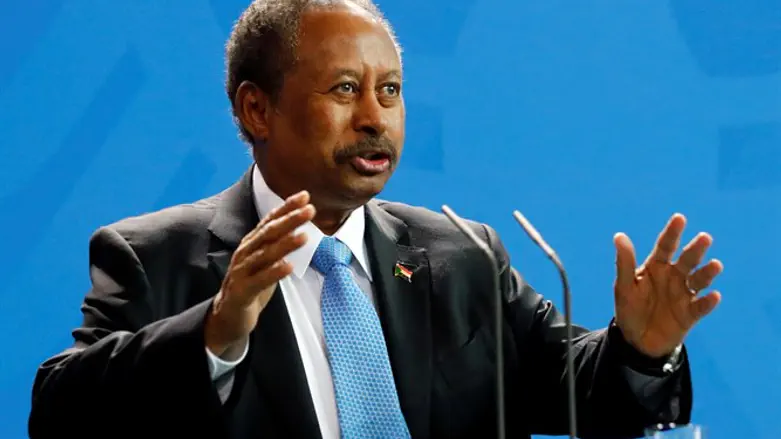
Sudan’s deposed prime minister and his wife were allowed to return home Tuesday after being detained when the military seized power in a coup, officials said, according to The Associated Press.
The release of Prime Minister Abdallah Hamdok and his wife followed international condemnation of the coup and calls for the military to release all the government officials who were detained when Gen. Abdel-Fattah Burhan seized power on Monday.
Burhan had said earlier Tuesday that Hamdok had been held for his own safety and would be released, but warned that other members of the dissolved government could face trial.
Hamdok and his wife were returned to their home in Khartoum’s upscale Kafouri neighborhood, and the house was under “heavy security,” said a military official, speaking on condition of anonymity.
The official did not say whether they were free to leave or make calls. An official at Hamdok’s office and pro-democracy activist Nazim Siraj confirmed his return home.
The military seized power on Monday in a move that was widely denounced abroad. On Tuesday, pro-democracy demonstrators blocked roads in the capital of Khartoum with makeshift barricades and burning tires. Troops fired on crowds a day earlier, killing four protesters, according to doctors.
In his second public appearance since seizing power, Burhan said Tuesday the military was forced to step in to resolve a growing political crisis.
“There were people who were talking about discriminating against others, and that was driving this country to reach a civil war that would lead to the fragmentation of this country, tearing apart its unity, its fabric and society. These dangers were in front of us,” Burhan was quoted as having told a televised news conference.
“The whole country was deadlocked due to political rivalries,” Burhan said. “The experience during the past two years has proven that the participation of political forces in the transitional period is flawed and stirs up strife.”
Hamdok had been held at Burhan’s home, the general said, and was in good health. Of the many other senior government officials detained Monday, Burhan alleged that some had tried to incite a rebellion within the armed forces, saying they would face trial. Others who are found “innocent” would be freed, he added.
On Monday, the United States announced that it is pausing assistance from the $700 million Sudan aid package following the coup attempt in the country.
"Those funds were intended to support the country's democratic transition as we evaluate the next steps for Sudan programming," said State Department Spokesperson Ned Price.
"The arrest of civilian government officials and other political leaders, including Prime Minister Hamdok undermines the country's transition to democratic civilian rule," Price added, calling on the civilian-led transitional government to be immediately restored.
Asked about the possible impact of the Sudan coup on the Abraham Accords, Price replied, "The normalization effort between Israel and Sudan is something that will have to be evaluated as we and as Israel watch very closely what happens in the coming hours and coming days. I wouldn’t want to weigh into that just yet."
Sudan became the third Arab country to normalize ties with Israel as part of the Abraham Accords brokered by the Trump Administration in October, 2020, following the United Arab Emirates and Bahrain.
The agreement between Israel and Sudan was announced days after then-US President Donald Trump officially removed Sudan from the list of nations that sponsor and finance terrorism.
However, despite the agreement, no steps for full normalization between Israel and Sudan have taken place as of yet.
